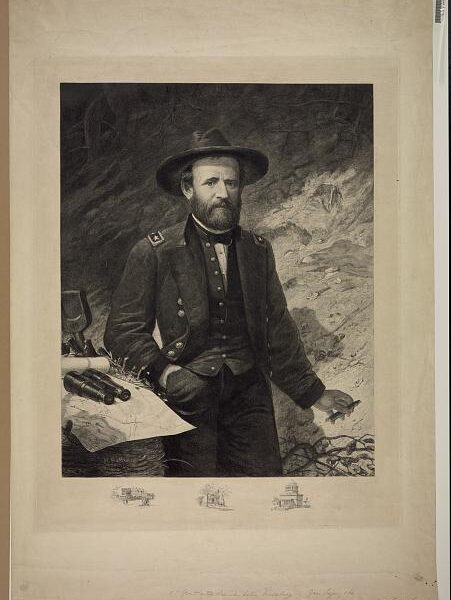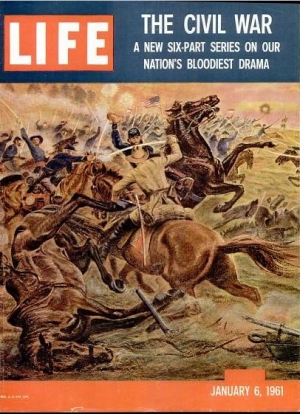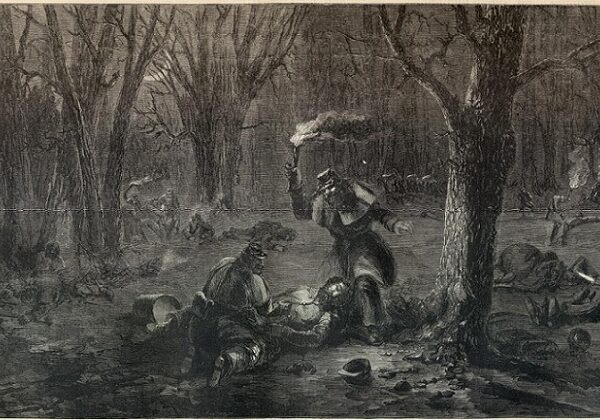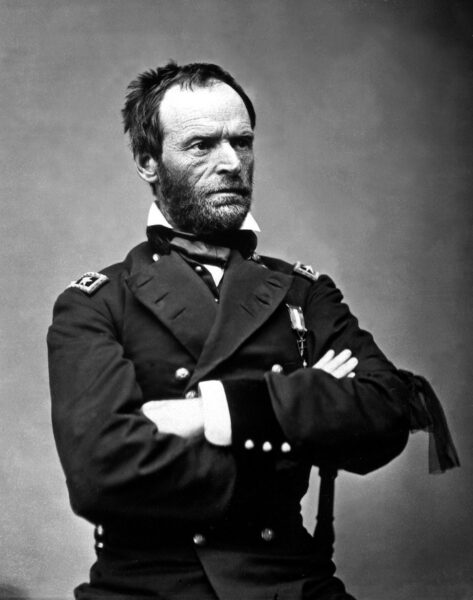 Library of Congress
Library of CongressWilliam T. Sherman
On November 15, 1864, Major General William T. Sherman and his army of some 60,000 men departed the city of Atlanta, which they had captured two months previously, to launch the campaign that would become known as the March to the Sea. While the Union commander’s ultimate objective was the occupation of Savannah, he also intended to negatively effect the morale of the southern population his army encountered on their route across Georgia. Six days before the campaign began, Sherman outlined his plan in Special Field Orders 120, which is reproduced below. By the time his men occupied Savannah on December 20, they had inflicted (according to Sherman in his after-action report) an estimated $100 million in damage “to the State of Georgia and its military resources” and foreshadowed the type of “total war” that would come to characterize subsequent conflicts.
Headquarters Military Division of the Mississippi,
In the Field, Kingston, Georgia, November 9, 1864
1. For the purpose of military operations, this army is divided into two wings….
2. The habitual order of march will be, wherever practicable, by four roads, as nearly parallel as possible, and converging at points hereafter to be indicated in orders. The cavalry … will receive special orders from the commander-in-chief.
3. There will be no general train of supplies, but each corps will have its ammunition-train and provision-train, distributed habitually as follows: Behind each regiment should follow one wagon and one ambulance; behind each brigade should follow a due proportion of ammunition-wagons, provision-wagons, and ambulances. In case of danger, each corps commander should change this order of march, by having his advance and rear brigades unencumbered by wheels. The separate columns will start habitually at 7 a.m., and make about fifteen miles per day, unless otherwise fixed in orders.
4. The army will forage liberally on the country during the march. To this end, each brigade commander will organize a good and sufficient foraging party, under the command of one or more discreet officers, who will gather, near the route traveled, corn or forage of any kind, meat of any kind, vegetables, corn-meal, or whatever is needed by the command, aiming at all times to keep in the wagons at least ten days’ provisions for his command, and three days’ forage. Soldiers must not enter the dwellings of the inhabitants, or commit any trespass; but, during a halt or camp, they may be permitted to gather turnips, potatoes, and other vegetables, and to drive in stock in sight of their camp. To regular foraging-parties must be intrusted the gathering of provisions and forage, at any distance from the road traveled.
5. To corps commanders alone is intrusted the power to destroy mills, houses, cotton-gins, etc.; and for them this general principle is laid down:
In districts and neighborhoods where the army is unmolested, no destruction of each property should be permitted; but should guerrillas or bushwhackers molest our march, or should the inhabitants burn bridges, obstruct roads, or otherwise manifest local hostility, then army commanders should order and enforce a devastation more or less relentless, according to the measure of such hostility.
Sherman’s army tears through Georgia in this depiction of the March to the Sea by F.O.C. Darley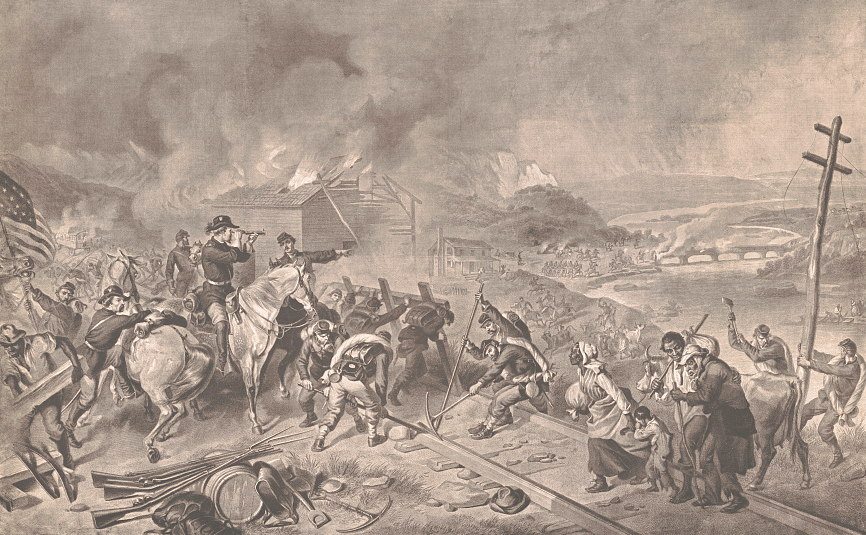 Library of Congress
Library of Congress
6. As for horses, mules, wagons, etc., belonging to the inhabitants, the cavalry and artillery may appropriate freely and without limit; discriminating, however, between the rich, who are usually hostile, and the poor and industrious, usually neutral or friendly. Foraging-parties may also take mules or horses, to replace the jaded animals of their trains, or to serve as pack-mules for the regiments or brigades. In all foraging, of whatever kind, the parties engaged will refrain from abusive or threatening language, and may, where the officer in command thinks proper, give written certificates of the facts, but no receipts; and they will endeavor to leave with each family a reasonable portion for their maintenance.
7. Negroes who are able-bodied and can be of service to the several columns may be taken along; but each army commander will bear in mind that the question of supplies is a very important one, and that his first duty is to see to those who bear arms.
8. The organization, at once, of a good pioneer battalion for each army corps, composed if possible of negroes, should be attended to. This battalion should follow the advance-guard, repair roads and double them if possible, so that the columns will not be delayed after reaching bad places. Also, army commanders should practise the habit of giving the artillery and wagons the road, marching their troops on one side, and instruct their troops to assist wagons at steep hills or bad crossings of streams.
9. Captain O. M. Poe, chief-engineer, will assign to each wing of the army a pontoon-train, fully equipped and organized; and the commanders thereof will see to their being properly protected at all times.
By order of Major-General W. T. Sherman
Related topics: William T. Sherman

